| HeritAP Inaugural Event and Symposium |
| Author:LI Hong and YANG Zilin, WHITRA PublishDate:2019-12-23 Hits:4036 |
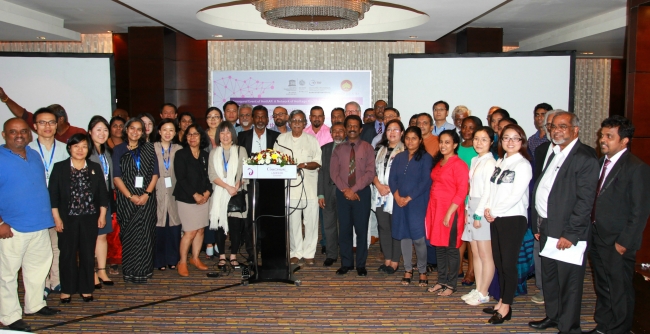 Group Photo
In recognition of WHITRAP's mission to enhance the regional role and foster the sharing of knowledge and experiences among heritage practitioners, from December 7 to December 10, 2019, HeritAP's first meeting was organized in Sri Lanka as a symposium on World Heritage Properties, Programmes and People in the Asia-Pacific Region. The HeritAP inaugural event was organized by WHITRAP Shanghai, with the kind support from ICOMOS Sri Lanka. Around 28 professionals from 12 countries and 30 from local authority and universities participated in the event. The HeritAP’s members were invited to share their experiences on management practice at national level and its associated programmes at local level, with emphasis on Sustainable Development. Participants also discussed the future activities of HeritAP, including the key annual event starting from 2020. The programme also included a study visit to two World Heritage sites in Sri Lanka.
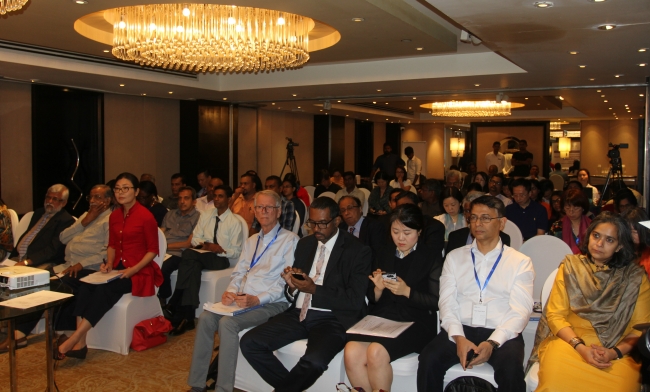 Opening ceremony
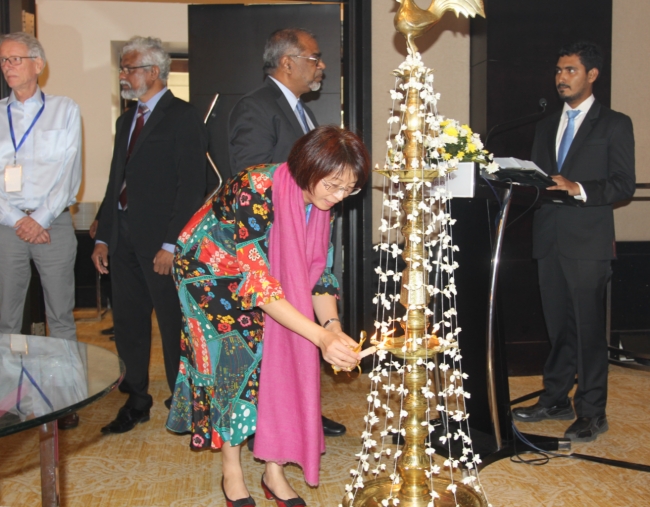 Lighting of the Oil Camp
The symposium launched on December 7 by lighting of the Oil Camp. Prof. ZHOU Jian, director of WHITRAP Shanghai, Prof. Gamini ADIKARI, president of ICOMOS Sri Lanka, and Mr. Bandula HARISCHANDRA, Ministry of Cultural Affairs made the opening speech respectively. Following the opening ceremony, speakers present their insights and experiences around three topics, including Reflection on Properties, Reflections on Programmes, and Recognizing People. Dr. Webber Ndoro, director-general of ICCROM, outlined ICCROM’s activities in Asia-Pacific and cooperation with WHITRAP Shanghai. He reiterated the importance of people-centered approaches on heritage conservation, in which communities should be involved by strengthening their ability to participate more meaningfully to decision-making and implementation processes. ICCROM expected further collaborations with WHITRAP on promoting cultural heritage and achieving Sustainable Development Goals in the Asia-Pacific Region.
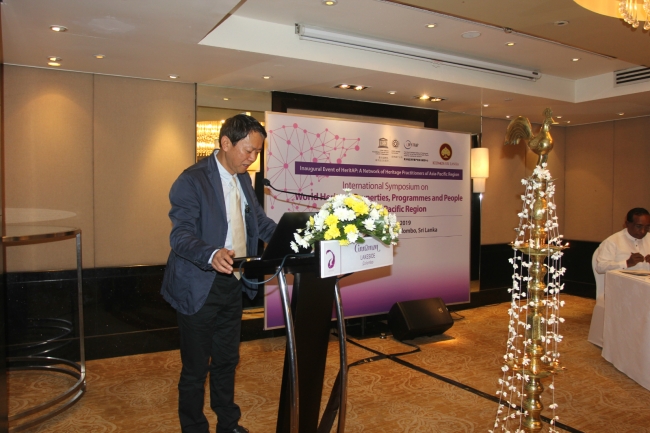 Prof. ZHOU Jian makes the opening speech
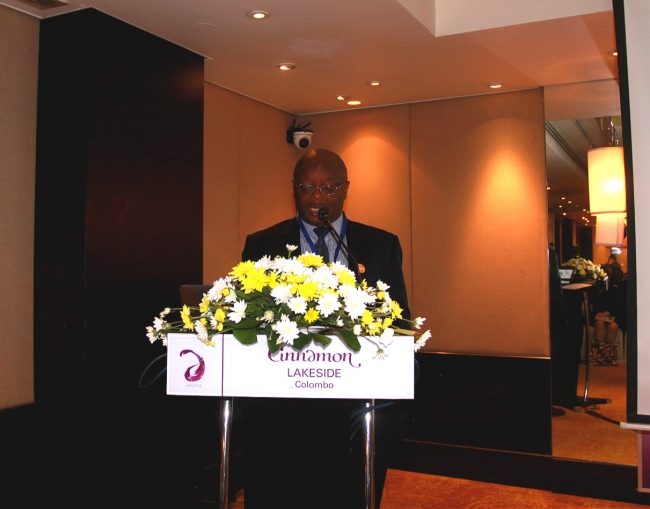 Prof. Webber NDORO makes the opening speech
In the first session ‘Reflections of Properties’, Li Hong, programme specialist of WHITRAP Shanghai, firstly provided an overview of World Heritage Sites in the Asia-Pacific region, including the number, diversity, and threats of World Heritage Sites in Asia-Pacific Region. Subsequently, seven speakers introduced World Heritage Properties and management systems in respective countries. Li Xue introduced World Cultural Heritage in China in terms of the development stage and strategies. Su Su presented ‘World Heritage Journey of Myanmar’ and articulated management plans. Nguyen Viet Cuong illustrated World Heritage in Viet Nam and its national decree on protection and management. Radhika Dhumal introduced the nomination process and management system of World Heritage in India. Roseri Rosdy Putri talked about World Heritage and its management issues in Indonesia with a case study on Ombilin Coal Ming Heritage of Sawahlunto. Nilan Cooray introduced all World Heritage properties and the Tentative List in Sri Lanka.
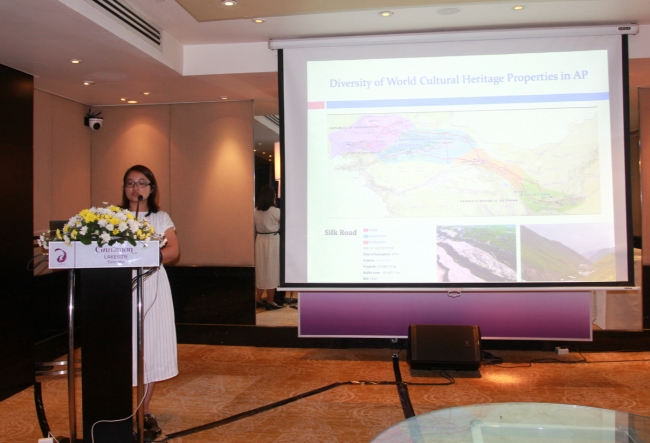 LI Hong, Programme Specialist, WHITRAP Shanghai
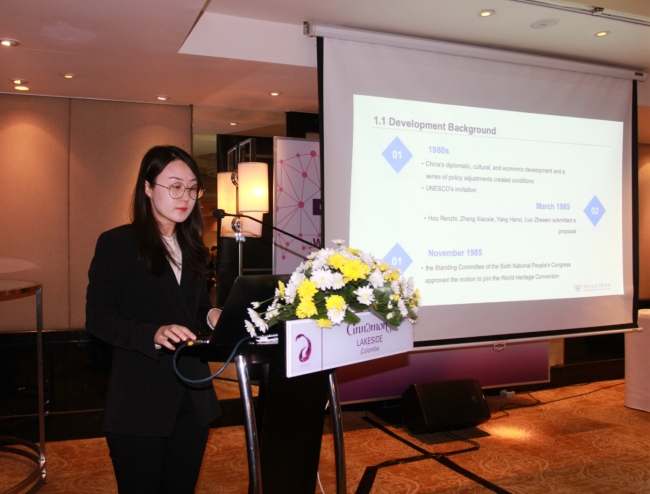 LI Xue, Engineer, Chinese Academy of Cultural Heritage
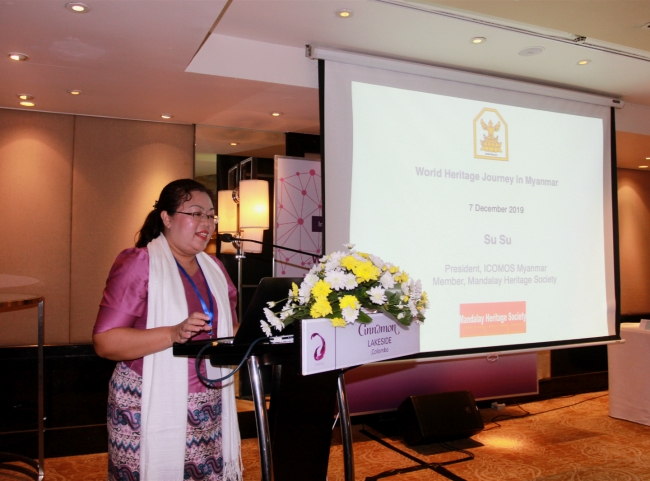 SU Su, President, ICOMOS Myanmar
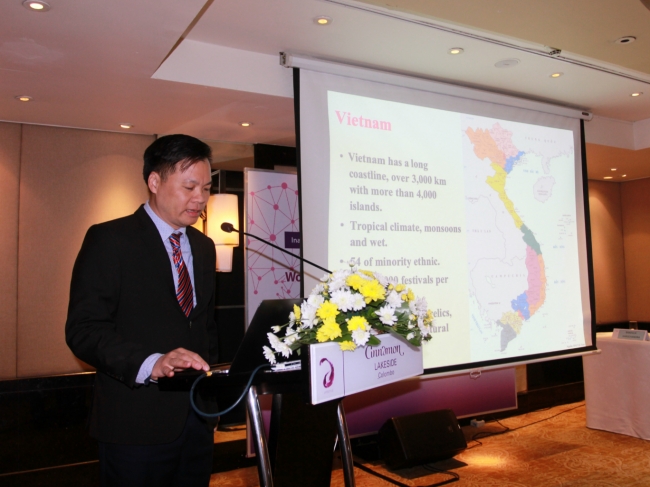 NGUYEN Viet Cuong,
Chief, the Relics and Monuments Management Division, Department of Cultural Heritage - Ministry of Culture, Sports and Tourism of Vietnam 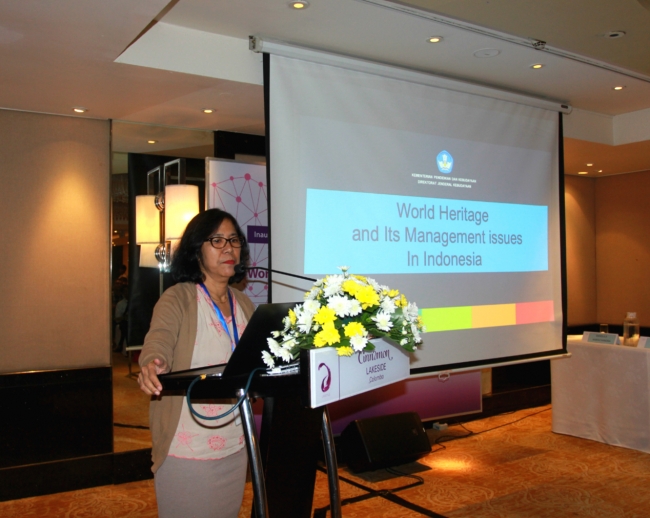 Roseri Rosdy Putri, Deputy Director for World Cultural Heritage, Ministry of Education and Culture, the Republic of Indonesia During the second session “Reflections on Programmes”, speakers shared experiences on sustainable development and introduced frontier projects on monitoring of World Heritage as well as threats brought by tourism. Natarajan Ishwaran spoke on the UN 2030 Agenda and its significance for the World Heritage and Sustainable Development Project in the Asia-Pacific region. Jihong KIM introduced Cultural Heritage Act and its mechanisms for the nomination and management of World Heritage in Korea. Gamini Wijesuriya, Special Advisor of WHITRAP Shanghai, presented the Silk Road Project and its significance including addressing the gap of under-represented categories of World Heritage such as Cultural Routes. Yang Ruixia introduced World Heritage Programmes by HIST based on the theme of heritage reservation and sustainable development. Sharif Shams Imon, assistant professor of the Macau Institute for Tourism Studies, discussed tourism issues at World Heritage sites in Asia-Pacific region. Li Xue presented the monitoring system of World Cultural Heritage in China with a case study on Liangzhu. Ang Ming Chee shared her experience of heritage management on George Town. Shao Yong introduced her study on conservation and sustainable development of Pingyao Ancient City with the Human-Habitat approach. Nobuko Inaba talked about World Heritage Studies at University of Tsukuba and the evolving understanding of its connotation. Han Feng illustrated cultural landscape in the World Heritage context with a case study on Wulingyuan pilot project of UNESCO WHSTP (World Heritage and Sustainable Tourism Programme). Radhika Dhumal shared her HIA learning experiences from WHITRAP and subsequent practice in India.
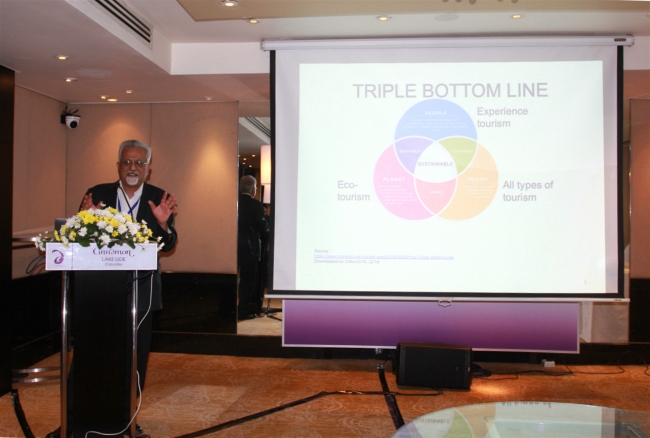 Natarajan ISHWARAN, Visiting Professor, UNESCO-HIST, Beijing
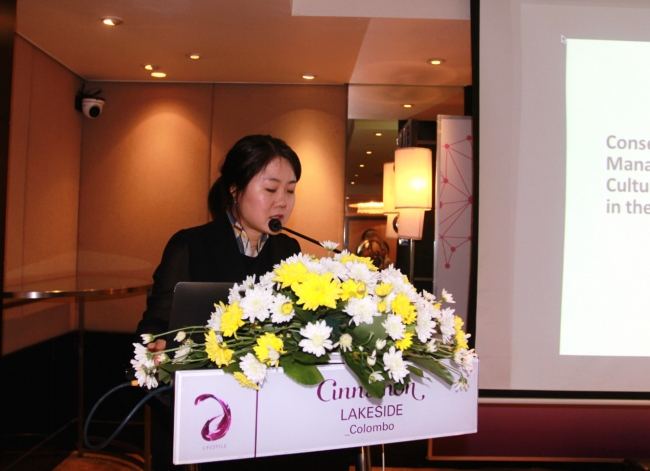 Jihong KIM,
Deputy Director, World Heritage Division, Cultural Heritage Administration of South Korea 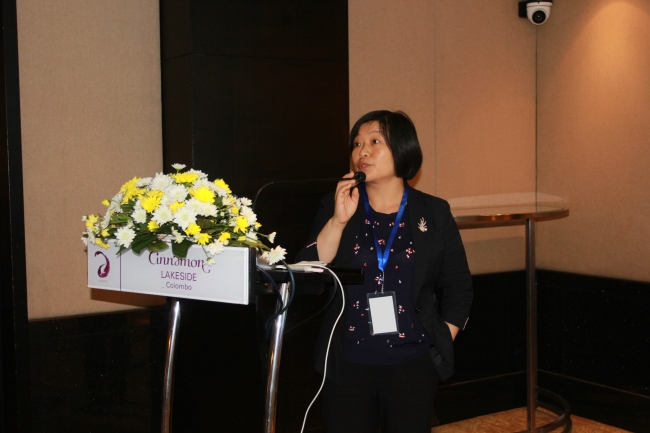 YANG Ruixia,
International Centre on Space Technologies for Natural and Cultural Heritage 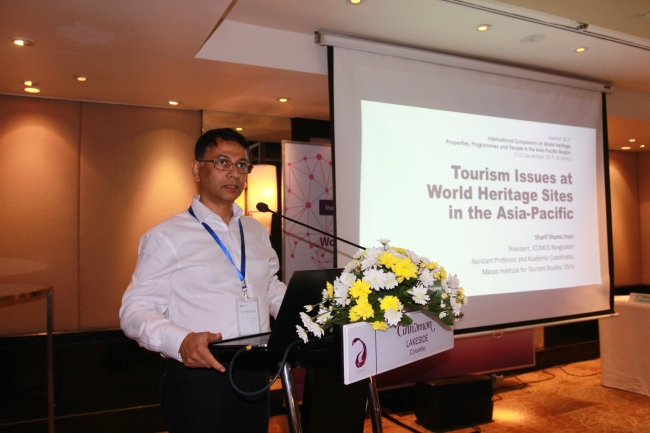 Sharif Shams IMON,
Assistant Professor and Academic Coordinator, Macao Institute for Tourism Studies 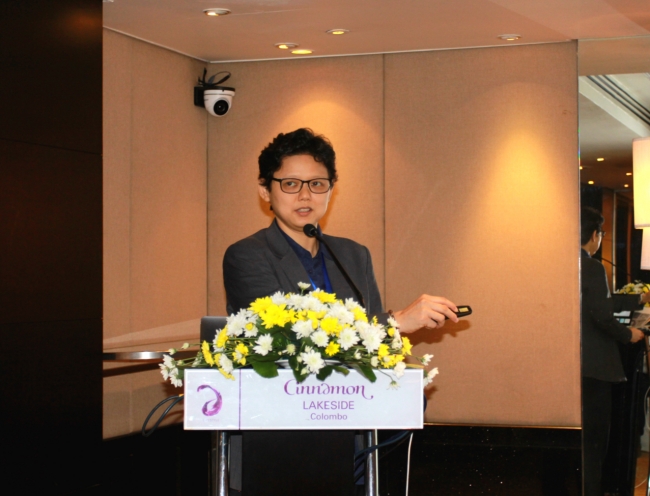 Ang Ming Chee,
General Manager, George Town World Heritage Incorporated, Malaysia 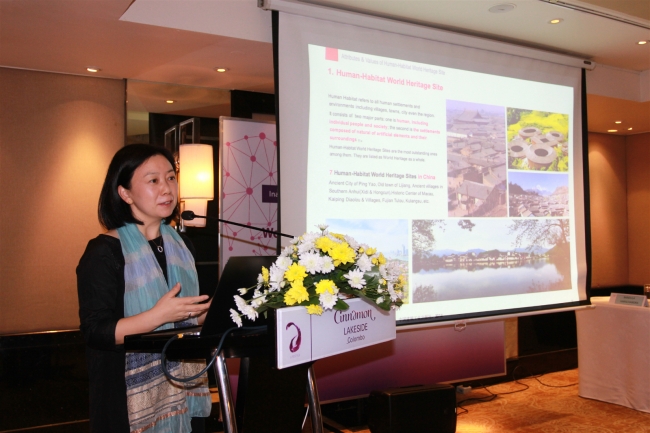 SHAO Yong, Professor, Tongji University
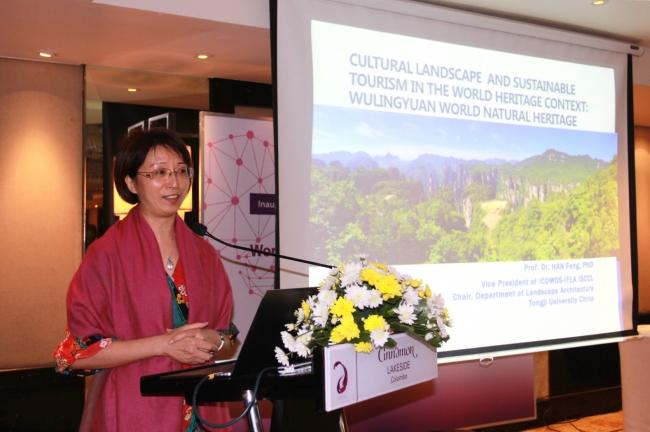 HAN Feng, Professor, Tongji University
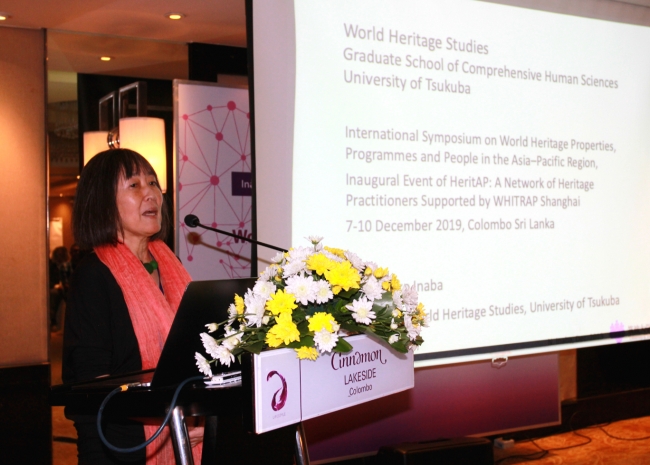 Nobuko INABA, Professor, University of Tsukuba
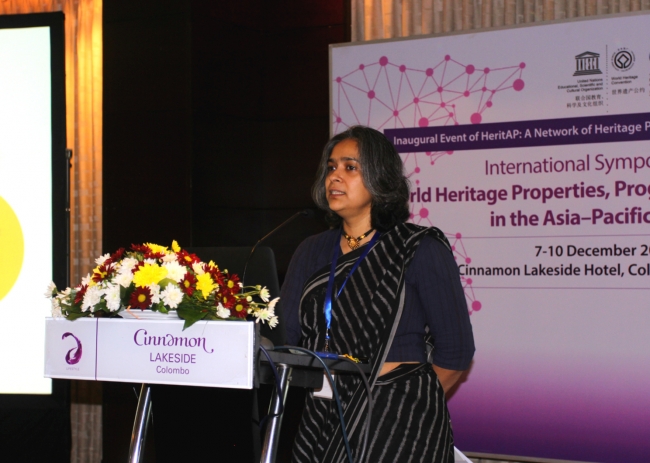 Radhika Dhumal,
Partner, Principal and Conservation Architect, the Architectural Studio The third session held on December 8th focused on ‘Reflections on People’. William Logan introduced new International policy directions for heritage management concerning sustainable development. Webber Ndoro introduced the conundrum for Africa on heritage and sustainable development. This session reassured the dilemma of poverty alleviation in heritage conservation. More pragmatic and prudent approaches on heritage management need to be addressed to alleviate poverty and mitigate the environmental impact of development. The inclusion of less-developed regions on sustainable development should also be considered.
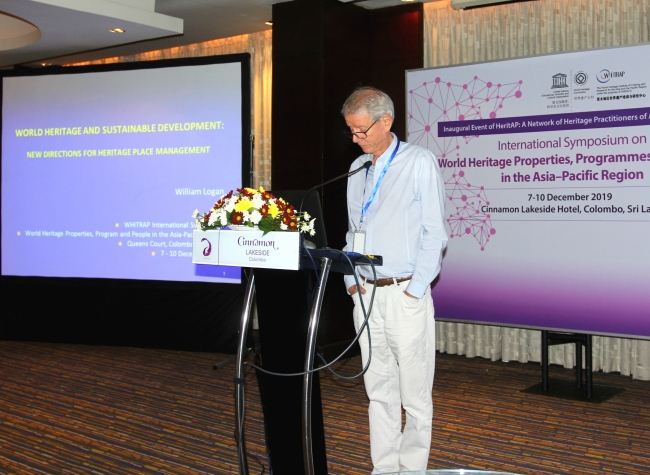 William Logan, Emeritus Professor, Deakin University
As for the fourth session for WHITRAP and HeritAP, Li Hong introduced the definition and aims of HeritAP while jointly introducing proposed Mid-term Strategies for WHITRAP 2020-2025 with Gamini. Participants actively provide profound comments and suggestions on Mid-term Strategies. Overall, priorities for training programmes proposed by participants are effective and responsive training on risk management, implementing the World Sustainable Development Policy at the local level, teaching people of heritage sites business planning skills, and trans-boundary nomination. Priorities for research areas proposed by participants are infrastructure development, engaging people, critical assessment to local documents, the interpretation of World documents at in regional contexts, World Heritage values concerning the country and local communities.
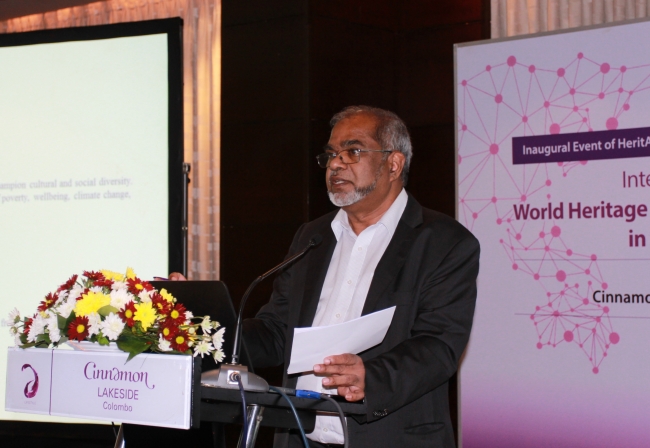 Gamini Wijesuriya, Special Advisor to WHITRAP Shanghai
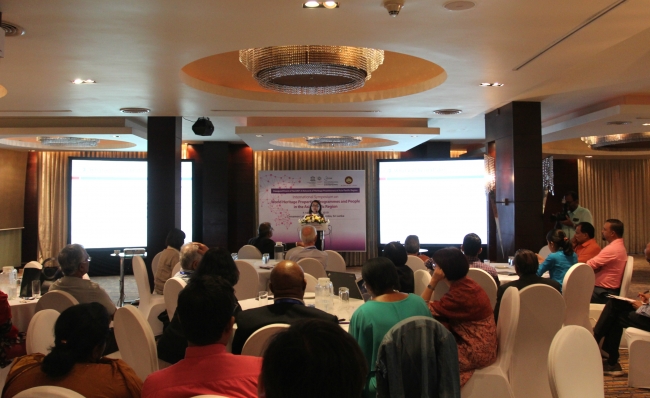 LI Hong, Programme Specialist, WHITRAP Shanghai
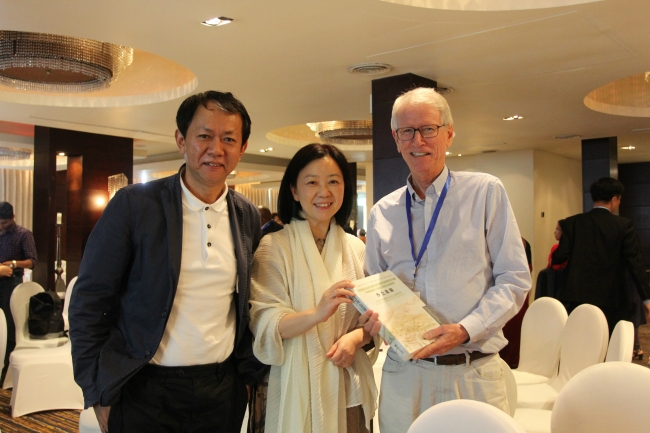 Share books
|
- News | WHITRAP Shanghai and CNR-ISPC bilateral meeting
- News | WHITRAP meets Cité de l’Architecture et du Patrimoine
- WHITRAP Hosting "Workshop on Preliminary Assessment for National Focal Points of the Asia Region" in Chengdu
- WHITRAP Shanghai meets UNESCO
- INTERNATIONAL CONFERENCE PRELIMINARY ANNOUNCEMENT & CALL FOR PAPERS
- Observation of the 46th Session of the World Heritage Committee
Copyright © 2009-2012 World Heritage Institute of Training and Research-Asia and Pacific (shanghai)


